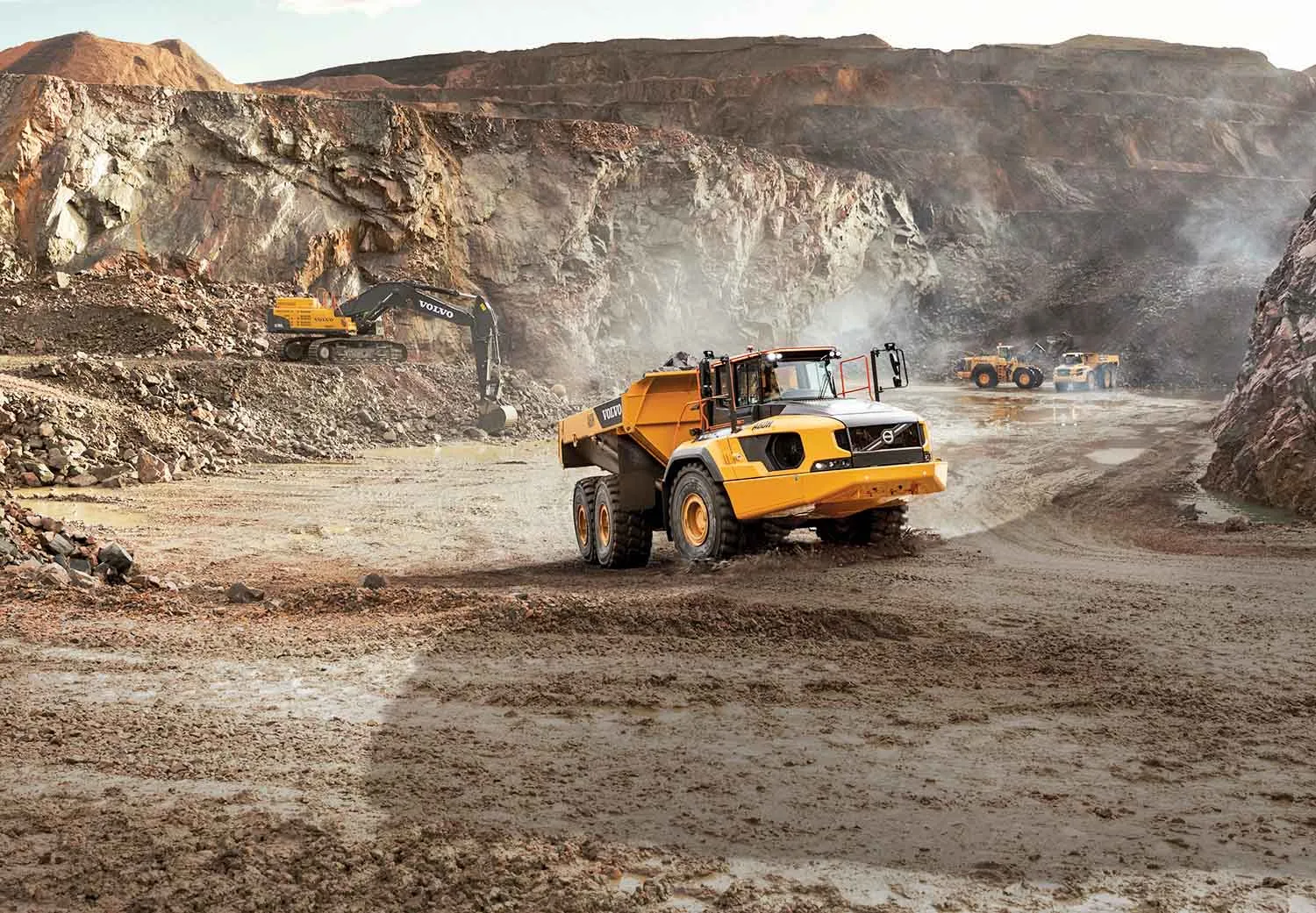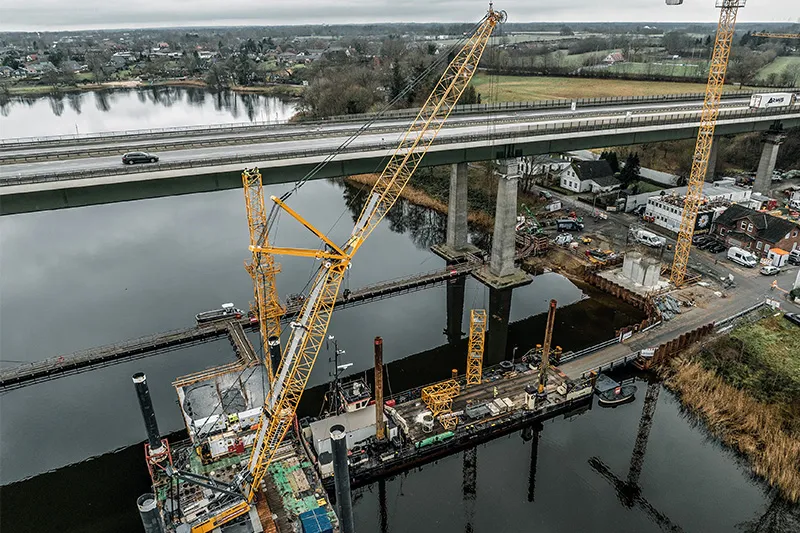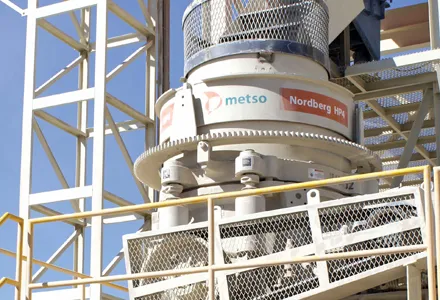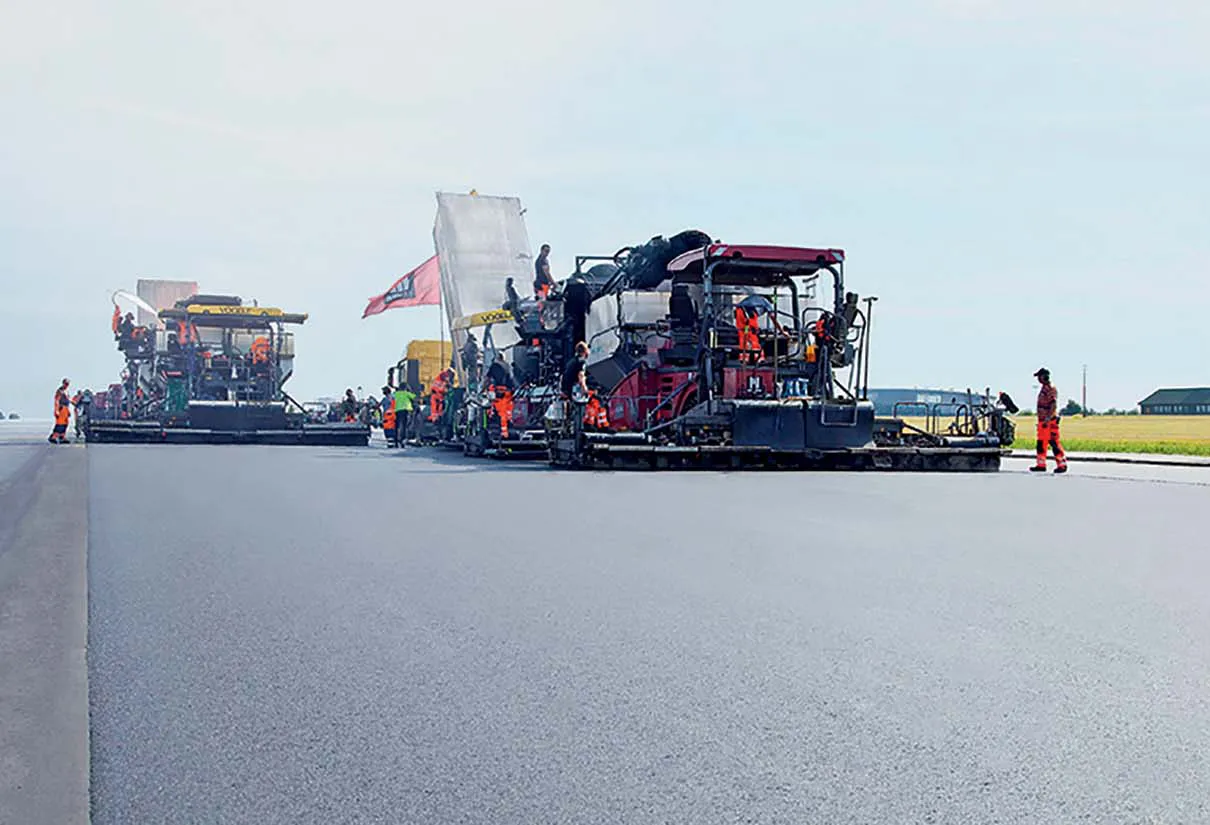Benninghoven has built an asphalt plant specially to order for a customer in Norway. Contractor Veidekke had a tight timeframe in which the plant could be erected at the firm’s chosen site in Sörli, as well as specific requirements as to its configuration. Benninghoven was able to construct the special TBA 4000 UC asphalt mixing plant to the firm’s request. A notable feature of the plant is that its large capacity materials towers stand 33m high.
The order was received in January 2014, with the plant the
August 18, 2015
Read time: 4 mins
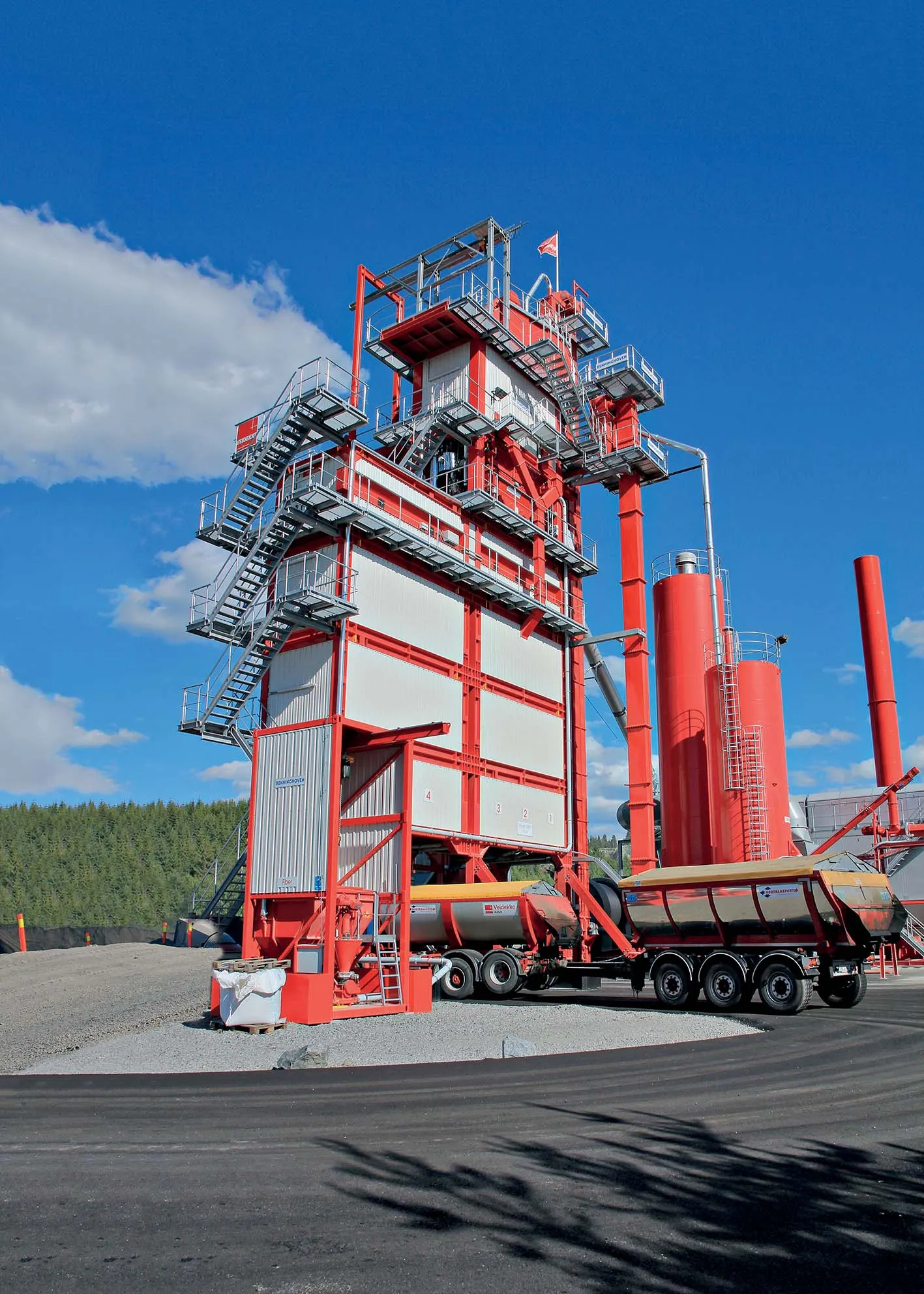
Benninghoven has built an asphalt plant specially to order for a customer in Norway. Contractor Veidekke had a tight timeframe in which the plant could be erected at the firm’s chosen site in Sörli, as well as specific requirements as to its configuration. Benninghoven was able to construct the special TBA 4000 UC asphalt mixing plant to the firm’s request. A notable feature of the plant is that its large capacity materials towers stand 33m high.
The order was received in January 2014, with the plant then being commissioned by May 2014. This was achieved despite the novel plant configuration and logistical obstacles during transportation of components from the167 Benninghoven facility in Germany.
Design work began on the plant even before the order was received officially, as the contractor had previously given an outline of the equipment specifications required.1209 Veidekke had explained to Benninghoven that it needed the 320tonne/hour plant ready in time for a major project commencing in May 2014.
One particularly big challenge came from the need for a minimum stack height of 20m. Because the plant was to be built on mobile foundations, this required the standard layout to be adapted accordingly. For this reason, Benninghoven developed a special foundation frame for the stack and filter dust collection unit allowing both components to be freely positioned without bracing.
“The narrow time frame specified called for additional concepts in order to make up time during assembly,” Benninghoven’s sales manager Rolf-Bernd Leimbrock, explained.
The required modules were selected by the engineering department even before the order finally arrived from Sörli, minimising delays in the event of confirmation.
Coordinated production planning optimised the supply of individual components. This was important as 58 trucks and heavy goods vehicles in all were needed for the 1,500km journey from Benninghoven’s facilities in Germany to the site in Norway. Leimbrock said, “Considering the number of complex transports required, it is important that all work steps dovetail perfectly, as it is by no means certain that all the required transport permits will be available in good time.”
Benninghoven and its logistics partner discovered that international transport of heavy goods can be fraught with uncertainties. Delays in the official processing of applications are common when preparing deliveries. But for the accompanying police vehicles to be deployed to other locations at short notice was a new experience, one that delayed the journey for several days. “After all, we’re not sending small parcels by surface mail; we’ve knocked down a 10-storey building into its individual parts and sent them off,” said Leimbrock. “That’s why you simply have to be prepared for all eventualities.“
Despite the challenges, the plant was commissioned on schedule. This was achieved through a combination of early planning, efficient production, an ample buffer in transport route planning and quick assembly through the use of sections pre-fitted with wiring and piping. Benninghoven also provided intensive training courses for Veidekke personnel introducing them to the new technology and modern BLS control system which records all the parameters needed for calculation and simplifies cost control. “Qualified training is an integral part of the start-up procedure and helps the customers, no matter how experienced, to make full use of a plant’s capacities from the very first day,” said Leimbrock.
With the new plant, Veidekke can load up to 10 trucks/hour
with asphalt. The mixing capacity of 320tonnes/hour is attributable to features such as the variable-frequency drying drum, the combined burner for liquefied gas and oil, and the six-deck screen. Other key features of the plant include the twoline system supplying bitumen, a hot aggregate bin unit with a capacity of 80tonnes, a mix storage silo for 346tonnes in six compartments, and the multi-variable feed option for up to 40% recycling material. Mobile foundations also allow the TBA 4000 UC to be relocated easily. After one year of operation, the plant had processed 170,000tonnes and as a result, the customer decided in March 2015 to purchase another plant from Benninghoven. The company ordered a TBA 3000, which is now coming on stream.
The order was received in January 2014, with the plant then being commissioned by May 2014. This was achieved despite the novel plant configuration and logistical obstacles during transportation of components from the
Design work began on the plant even before the order was received officially, as the contractor had previously given an outline of the equipment specifications required.
One particularly big challenge came from the need for a minimum stack height of 20m. Because the plant was to be built on mobile foundations, this required the standard layout to be adapted accordingly. For this reason, Benninghoven developed a special foundation frame for the stack and filter dust collection unit allowing both components to be freely positioned without bracing.
“The narrow time frame specified called for additional concepts in order to make up time during assembly,” Benninghoven’s sales manager Rolf-Bernd Leimbrock, explained.
The required modules were selected by the engineering department even before the order finally arrived from Sörli, minimising delays in the event of confirmation.
Coordinated production planning optimised the supply of individual components. This was important as 58 trucks and heavy goods vehicles in all were needed for the 1,500km journey from Benninghoven’s facilities in Germany to the site in Norway. Leimbrock said, “Considering the number of complex transports required, it is important that all work steps dovetail perfectly, as it is by no means certain that all the required transport permits will be available in good time.”
Benninghoven and its logistics partner discovered that international transport of heavy goods can be fraught with uncertainties. Delays in the official processing of applications are common when preparing deliveries. But for the accompanying police vehicles to be deployed to other locations at short notice was a new experience, one that delayed the journey for several days. “After all, we’re not sending small parcels by surface mail; we’ve knocked down a 10-storey building into its individual parts and sent them off,” said Leimbrock. “That’s why you simply have to be prepared for all eventualities.“
Despite the challenges, the plant was commissioned on schedule. This was achieved through a combination of early planning, efficient production, an ample buffer in transport route planning and quick assembly through the use of sections pre-fitted with wiring and piping. Benninghoven also provided intensive training courses for Veidekke personnel introducing them to the new technology and modern BLS control system which records all the parameters needed for calculation and simplifies cost control. “Qualified training is an integral part of the start-up procedure and helps the customers, no matter how experienced, to make full use of a plant’s capacities from the very first day,” said Leimbrock.
With the new plant, Veidekke can load up to 10 trucks/hour
with asphalt. The mixing capacity of 320tonnes/hour is attributable to features such as the variable-frequency drying drum, the combined burner for liquefied gas and oil, and the six-deck screen. Other key features of the plant include the twoline system supplying bitumen, a hot aggregate bin unit with a capacity of 80tonnes, a mix storage silo for 346tonnes in six compartments, and the multi-variable feed option for up to 40% recycling material. Mobile foundations also allow the TBA 4000 UC to be relocated easily. After one year of operation, the plant had processed 170,000tonnes and as a result, the customer decided in March 2015 to purchase another plant from Benninghoven. The company ordered a TBA 3000, which is now coming on stream.


